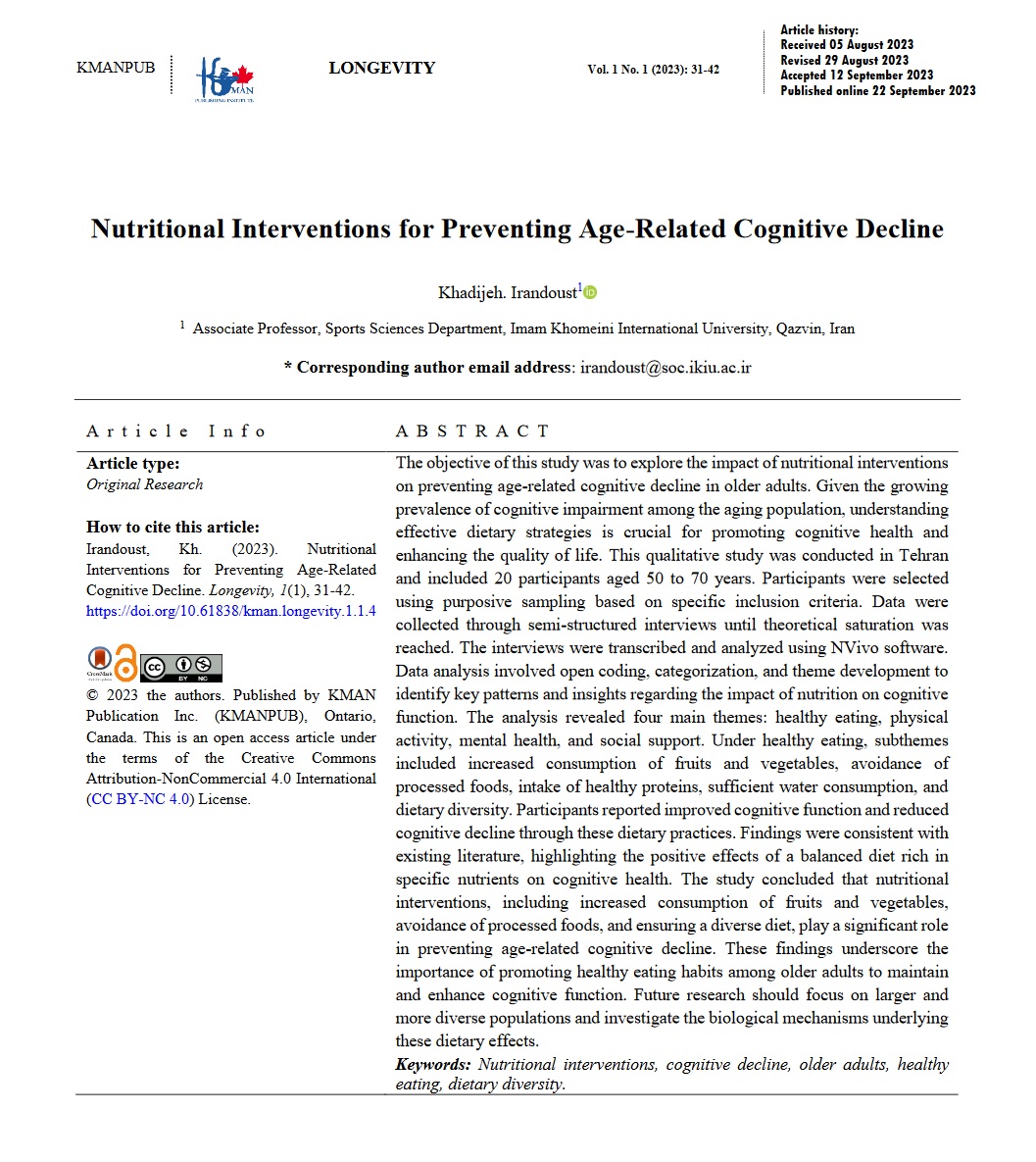Nutritional Interventions for Preventing Age-Related Cognitive Decline
Keywords:
Nutritional interventions, cognitive decline, older adults, healthy eating, dietary diversityAbstract
The objective of this study was to explore the impact of nutritional interventions on preventing age-related cognitive decline in older adults. Given the growing prevalence of cognitive impairment among the aging population, understanding effective dietary strategies is crucial for promoting cognitive health and enhancing the quality of life. This qualitative study was conducted in Tehran and included 20 participants aged 50 to 70 years. Participants were selected using purposive sampling based on specific inclusion criteria. Data were collected through semi-structured interviews until theoretical saturation was reached. The interviews were transcribed and analyzed using NVivo software. Data analysis involved open coding, categorization, and theme development to identify key patterns and insights regarding the impact of nutrition on cognitive function. The analysis revealed four main themes: healthy eating, physical activity, mental health, and social support. Under healthy eating, subthemes included increased consumption of fruits and vegetables, avoidance of processed foods, intake of healthy proteins, sufficient water consumption, and dietary diversity. Participants reported improved cognitive function and reduced cognitive decline through these dietary practices. Findings were consistent with existing literature, highlighting the positive effects of a balanced diet rich in specific nutrients on cognitive health. The study concluded that nutritional interventions, including increased consumption of fruits and vegetables, avoidance of processed foods, and ensuring a diverse diet, play a significant role in preventing age-related cognitive decline. These findings underscore the importance of promoting healthy eating habits among older adults to maintain and enhance cognitive function. Future research should focus on larger and more diverse populations and investigate the biological mechanisms underlying these dietary effects.










